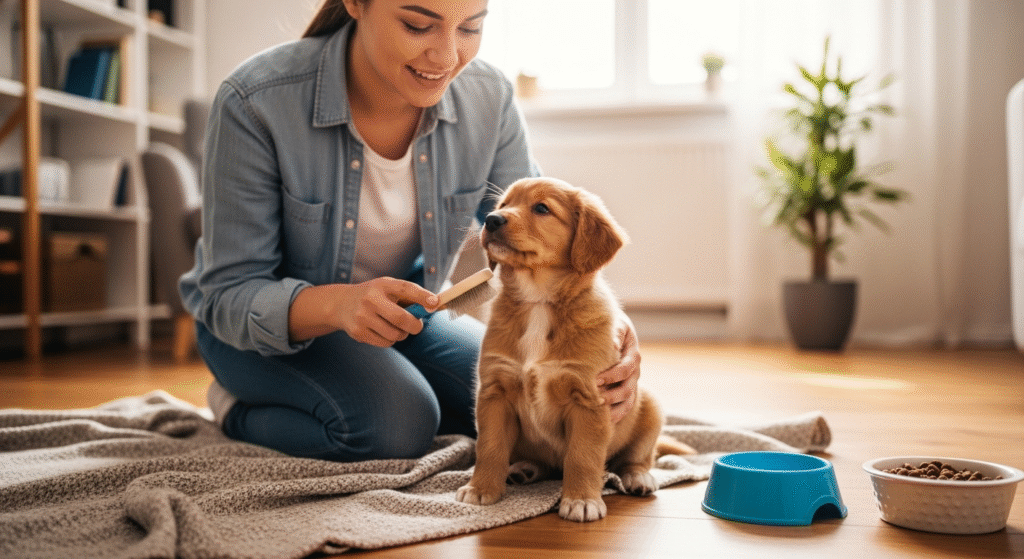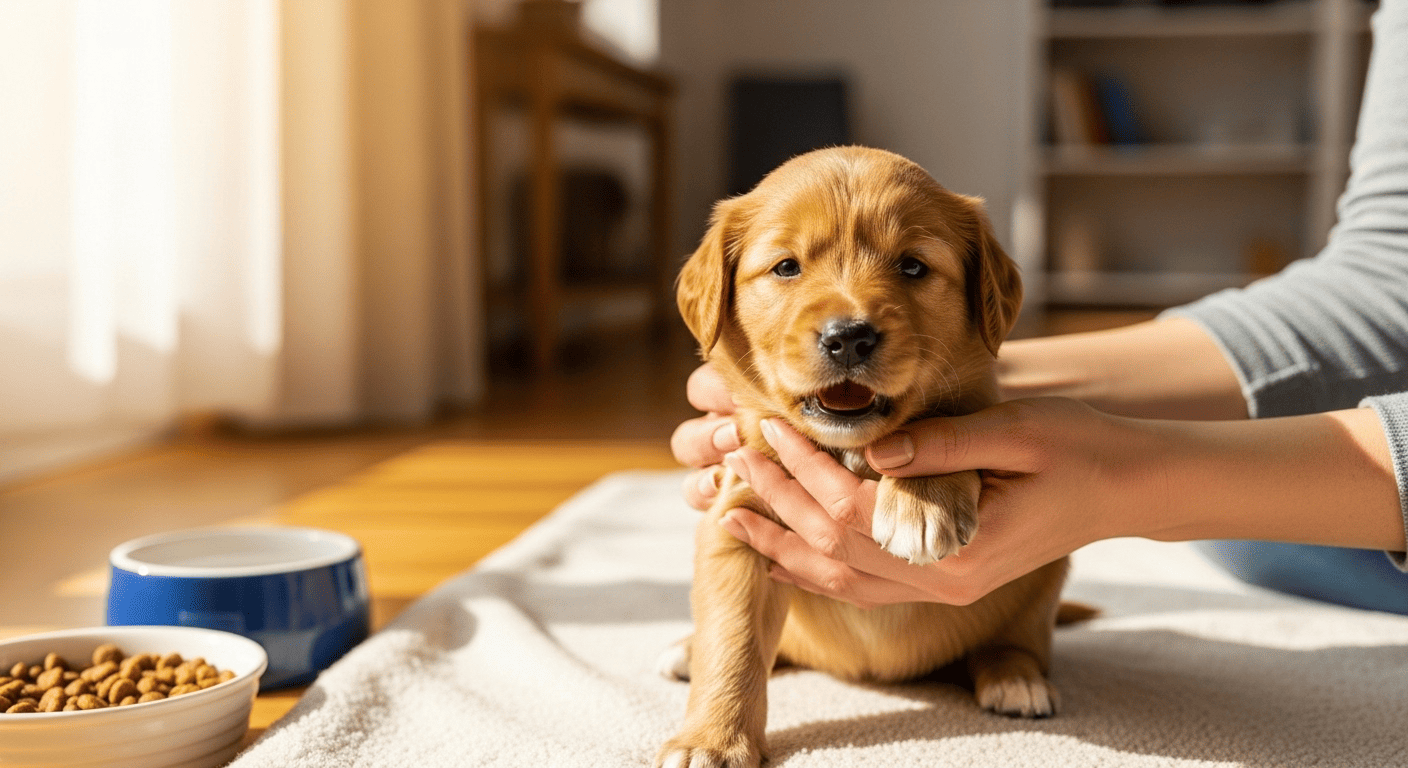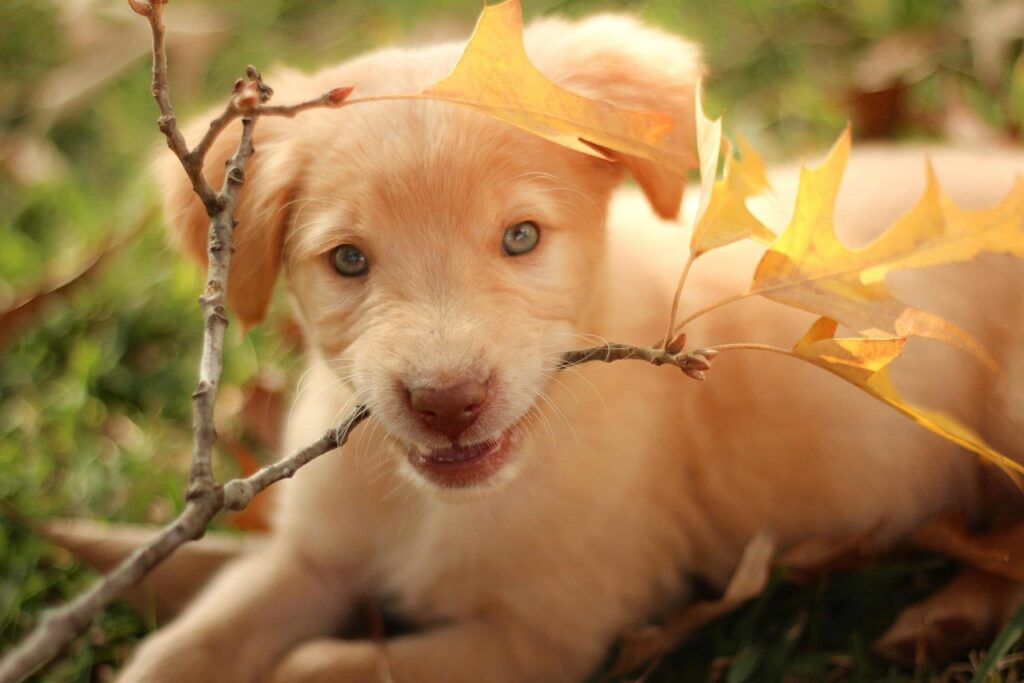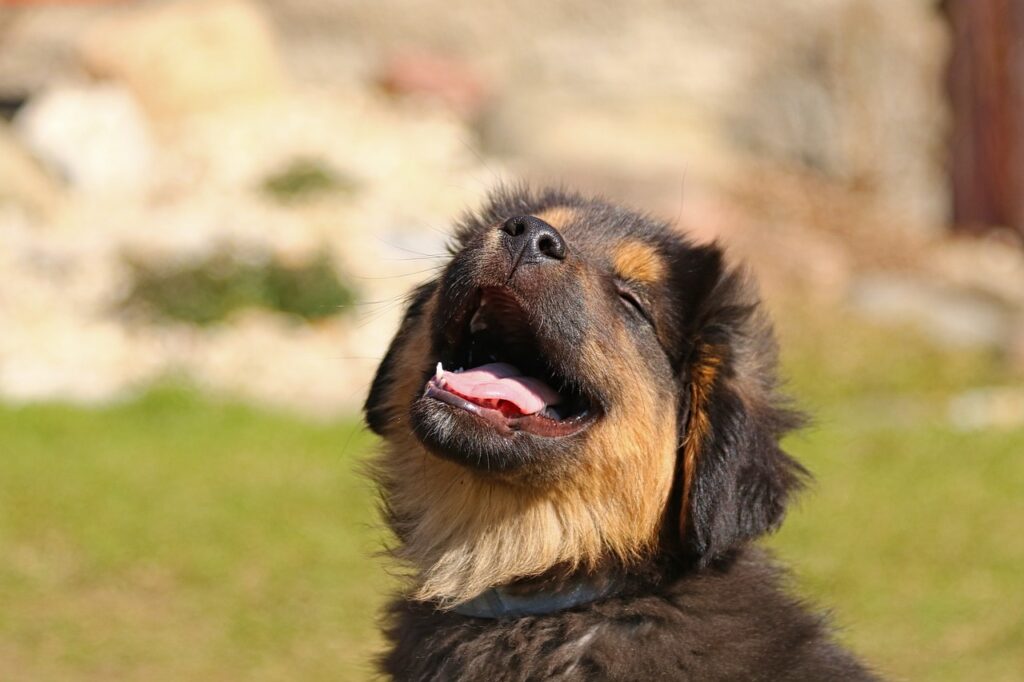How to Care for a 6 Week Old Puppy
Taking home a 6-week-old puppy is exciting, but it’s also a big responsibility. Your puppy is learning about the world outside the litter at this age and needs more attention, training, and healthcare. If you’re wondering how to care for a 6 week old puppy, then this guide will walk you through everything you need to know from feeding schedules to socialization and health essentials.
Why 6 Weeks Is a Critical Age for Puppies
At six weeks of age, your puppy is at one of the most critical points of development. They are no longer neonates, but they’re not yet ready to be completely independent. This transition stage determines their future health, behavior, and emotional well-being. This age is so important because:
1. Weaning From Mother’s Milk to Solid Foods
By 6 weeks, puppies are in weaning. They are gradually shifted from their mother’s milk to solid puppy food. This process is significant because:
- Their digestive system is still fragile and adjusting.
- They need high-quality food full of nutrients to support rapid growth.
- Proper diet enhances their bones, teeth, and immune system.
The process goes wrong, and puppies develop digestive disturbance or malnutrition.
2. Development of Social Skills Using Littermates
Puppies learn valuable skills through play and social interaction with littermates. Through this, they pick up on:
- Bite inhibition (biting too hard).
- The basics of canine-to-canine communication—body language, growling, and play cues.
- Bravery to explore their world.
Taking a puppy too early away from its litter may result in behavioral issues like anxiety, fear, or over-biting.
3. Physical Development and Teething
At six weeks, the puppies are growing fast, and their baby teeth are beginning to push through. Watch them:
- Gnawing on toys, furniture, or your fingers.
- Building stronger muscles as they play and investigate.
- Requiring more calories and protein to support this growth surge.
Effective care at this time will see them grow into robust, healthy adults.
4. Developing Early Habits and Emotional Attachments
The sixth week is when the puppies start to form habits and attachments. It is the most optimal time to:
- Introduce gentle training by positive reinforcement gradually.
- Establish a feeding and toilet routine.
- Enslave them to human beings through calm handling and affection.
Positive experience today builds trust and lays the ground for a confident, well-mannered dog.

Feeding a 6 Week Old Puppy
Nutrition forms the foundation of your puppy’s health and wellbeing, especially at just six weeks old. At this age, your puppy’s digestive system is not yet fully developed, and their very high growth rate indicates they need properly balanced meals. Feeding them now with an appropriate diet sets them up for good things in the future.
Choosing the Right Food
- Quality puppy diet: Feed only a puppy-specific diet. These contain the correct amounts of protein, fat, vitamins, and minerals to support brain development, sound bones, and a robust immune system.
- Wet food vs. kibble: Most 6-week-old puppies do well on wet food or softened dry kibble marinated in warm water or puppy formula to soften and facilitate chewing and digestion.
- Avoid home cooking: Unless your veterinarian recommends it, home-prepared foods lack the proper nutrients growing puppies need.
Feeding Frequency
Small puppy stomachs have to handle high energy demands. That’s why:
- Feed 4 smaller meals a day spread out throughout the day.
- Avoid free-feeding (having food available at all times), as this leads to overeating and digestive upset.
- Stick to a consistent feeding schedule to aid digestion and house training.
Portion Size and Adjustments
- Start by following the feeding instructions on the puppy food packaging.
- Adjust based on your puppy’s size, breed, and activity level. Large breeds likely will be able to tolerate a bit larger portions, and little breeds require smaller but more calorie-dense meals.
- Observe them for weight and condition—your puppy must have a tucked-in belly after eating but not bloated.
Importance of Hydration
- Always provide fresh, clean water in a shallow dish that your puppy can easily access.
- Puppies lose water quickly, especially if they are energetic or in warm weather.
- Replace water at least twice a day so that it stays clean.
Foods Not to Give
Certain foods can harm your puppy at this young age. Never give:
- Cow’s milk (causes diarrhea and stomach issues).
- Human foods like chocolate, grapes, onions, garlic, or greasy foods.
- Bones (they crack and cause internal harm).
Pro Tip: Use the feeding times as training opportunities. Place the bowl down only when your puppy is calm, and remove it after 15–20 minutes. It establishes mealtime manners and strengthens structure.
Veterinary and Health Care for 6 Week Old Puppy
Your puppy’s health starts the second you bring them home. At 6 weeks of age, your puppy is still very vulnerable, and having a good veterinary plan in place is vital.
- First Vet Visit: Schedule a visit to weigh, check the development and overall condition of your puppy. The vet will check for congenital issues, parasites, and discuss future upkeep.
- Vaccines: Puppies typically begin their core vaccines at 6–8 weeks, which protect against serious diseases like parvovirus, distemper, and adenovirus. Adhering to the schedule is important for protection.
- Deworming: Puppies tend to be born with intestinal worms. Ongoing deworming, usually every 2 weeks until 12 weeks, wards off parasites that can hinder growth and cause gastrointestinal disturbance.
- Prevention of Flea and Tick: These puppies as young as this can turn into fleas or ticks. Ask your vet what can be used on them, as not everything is puppy-safe.
- Microchipping (optional but recommended): It is done by some vets at this age so that your puppy can still be traced in case they get lost.
Socialization and Training at 6 Weeks
Training is not an option to postpone—your puppy starts learning from day one. At 6 weeks, be patient and positive.
- Socialization: Gradually introduce your puppy to diverse people, noises, and safe environments cautiously. Early positive exposure reduces the likelihood of fear and anxiety later on.
- Potty Training: Begin with crate training or pee pads. Routines work well for puppies, so take them out following meals, naps, and play.
- Teething & Chewing: Chewing is natural by now. Offer puppy chew toys to direct their energy and prevent your furniture from getting chewed up.
- Basic Commands: Start with short, fun lessons on “sit,” “come,” or “stay.” Practice praise, treats, and repetition—never punishment.
Tip: Training sessions only need to be 3–5 minutes long to keep your puppy engaged without overloading them.
Creating a Safe Environment
Your new home is a new world for your puppy, so safety is the top priority.
- Puppy-proofing: Remove the environment of potential hazards such as loose cords, small objects, medication, and poisonous flowers (like lilies or aloe).
- Safe space: Provide a comfortable crate or playpen where your puppy will sleep and feel secure.
- Resting area: Set up a gentle bed in a quiet spot, away from high-traffic areas and noise.
- Boundaries: Block off puppy-proofing rooms using baby gates.
Sleeping Habits of a 6 Week Old Puppy
Don’t worry if your new puppy sleeps most of the day.
- Puppies typically sleep 18–20 hours a day at this age.
- Sleep supports brain development, muscle growth, and immune function.
- Provide their sleeping environment with warmth, draft protection, and removal from disturbance.
- Napping after meals, training, and playing.
Common Mistakes to Avoid
It is done by most new puppy owners unknowingly. Some common mistakes to avoid are:
- Overfeeding: Bloating, digestive issues, and excess weight gain can happen due to too much food.
- Harsh discipline: Yelling and physical punishment create fear. Positive reinforcement builds trust and good habits.
- Skipping vet visits: Early medical care is not a choice for healthy growth.
- Leaving puppies alone too long: Puppies this young need companionship, supervision, and frequent potty breaks.
Final Thoughts
Learning how to care for a 6 week old puppy may seem overwhelming at first, but with patience, consistency, and love, you’ll raise a happy, healthy companion. Focus on:
- A balanced diet and feeding schedule.
- Regular veterinary visits and vaccinations.
- Gentle training and socialization.
- A safe, loving environment.
Remember every effort you make now sets the foundation for your puppy’s adult behavior, health, and relationship with you.
Yuns Legdm is a passionate advocate for pet care and the founder of this website, dedicated to providing valuable information for fellow pet lovers and veterinary professionals worldwide. With a deep love for animals, Yuns created this platform to connect passionate pet owners with expert insights from veterinarians around the globe.
This website grows with you—the passionate pet owners and veterinary experts—creating a trusted space where knowledge, experience, and love for animals come together. Whether you’re seeking advice on pet health, nutrition, or general well-being, this platform is here to support you on your journey of responsible and loving pet care.





